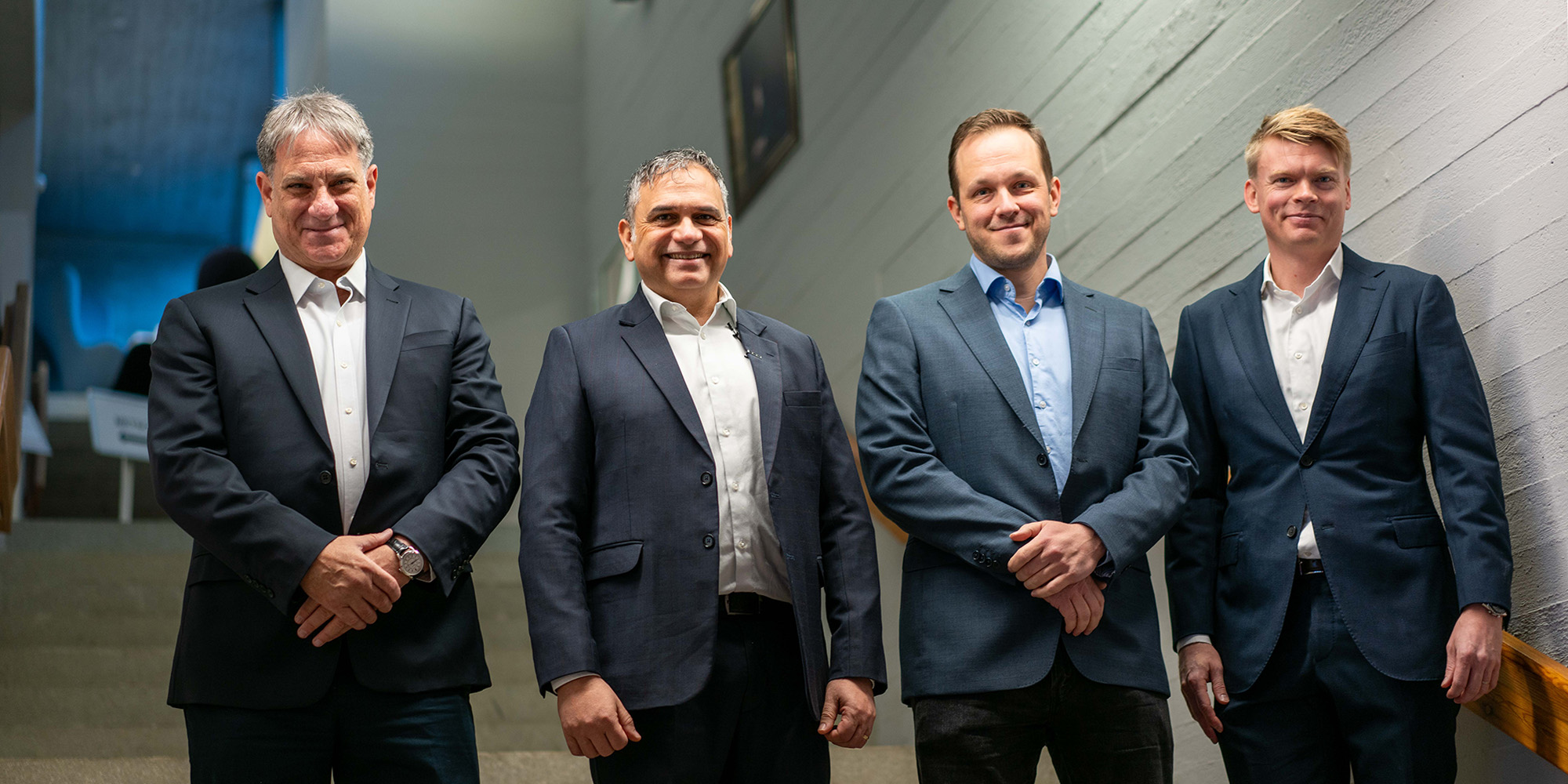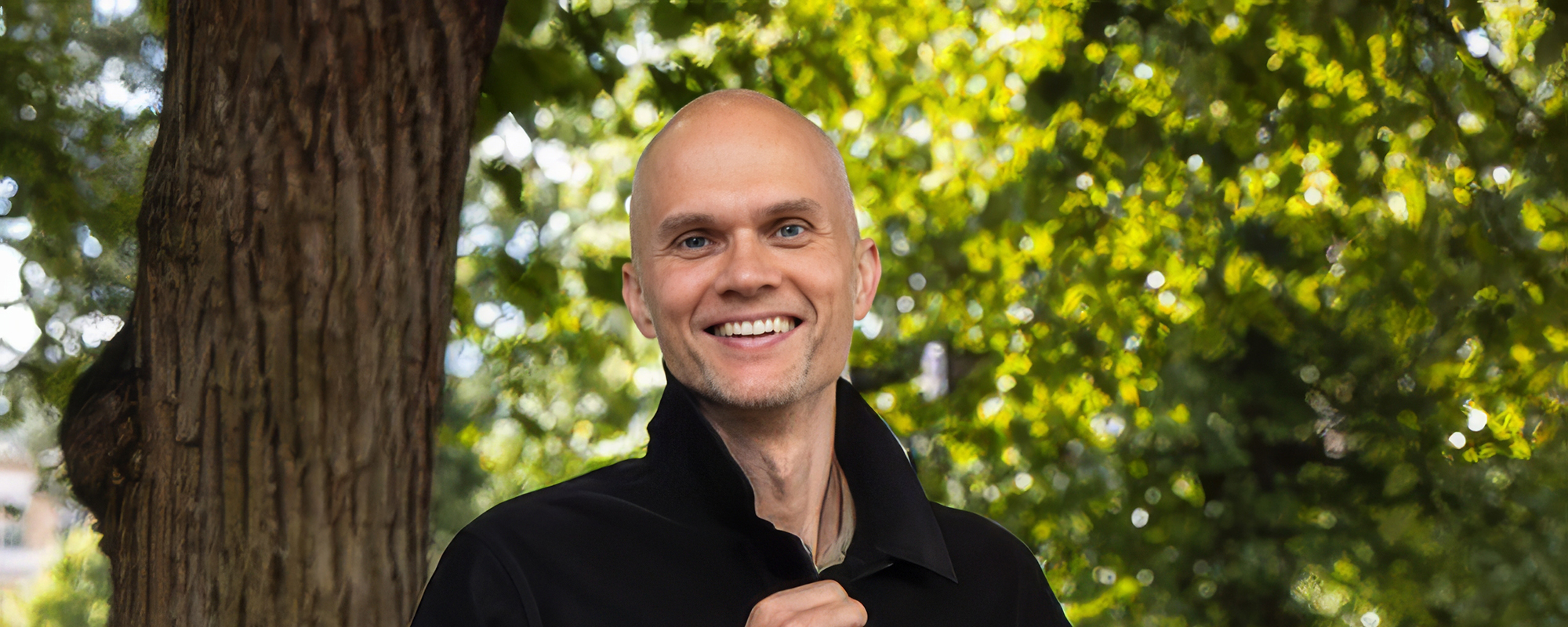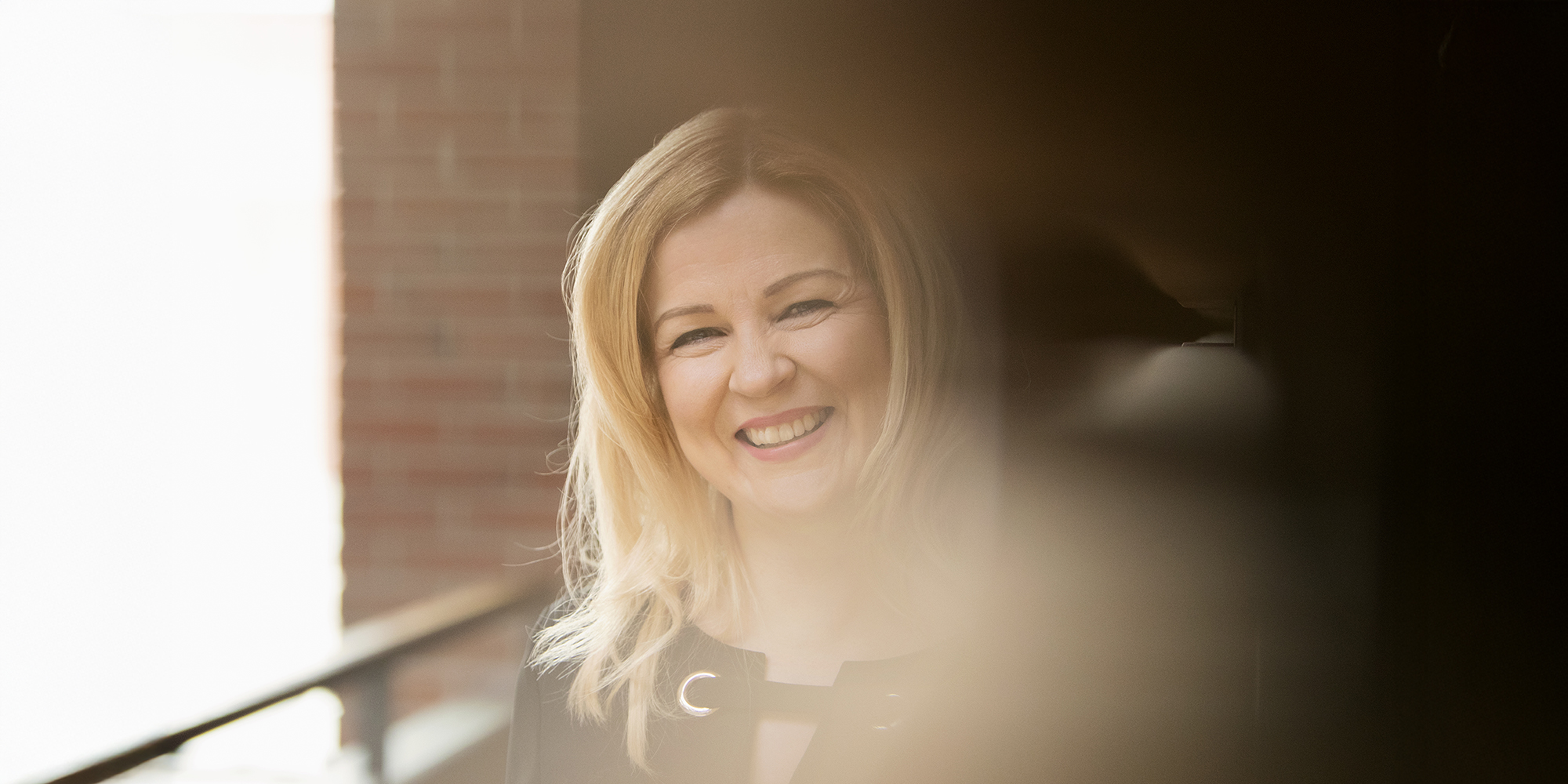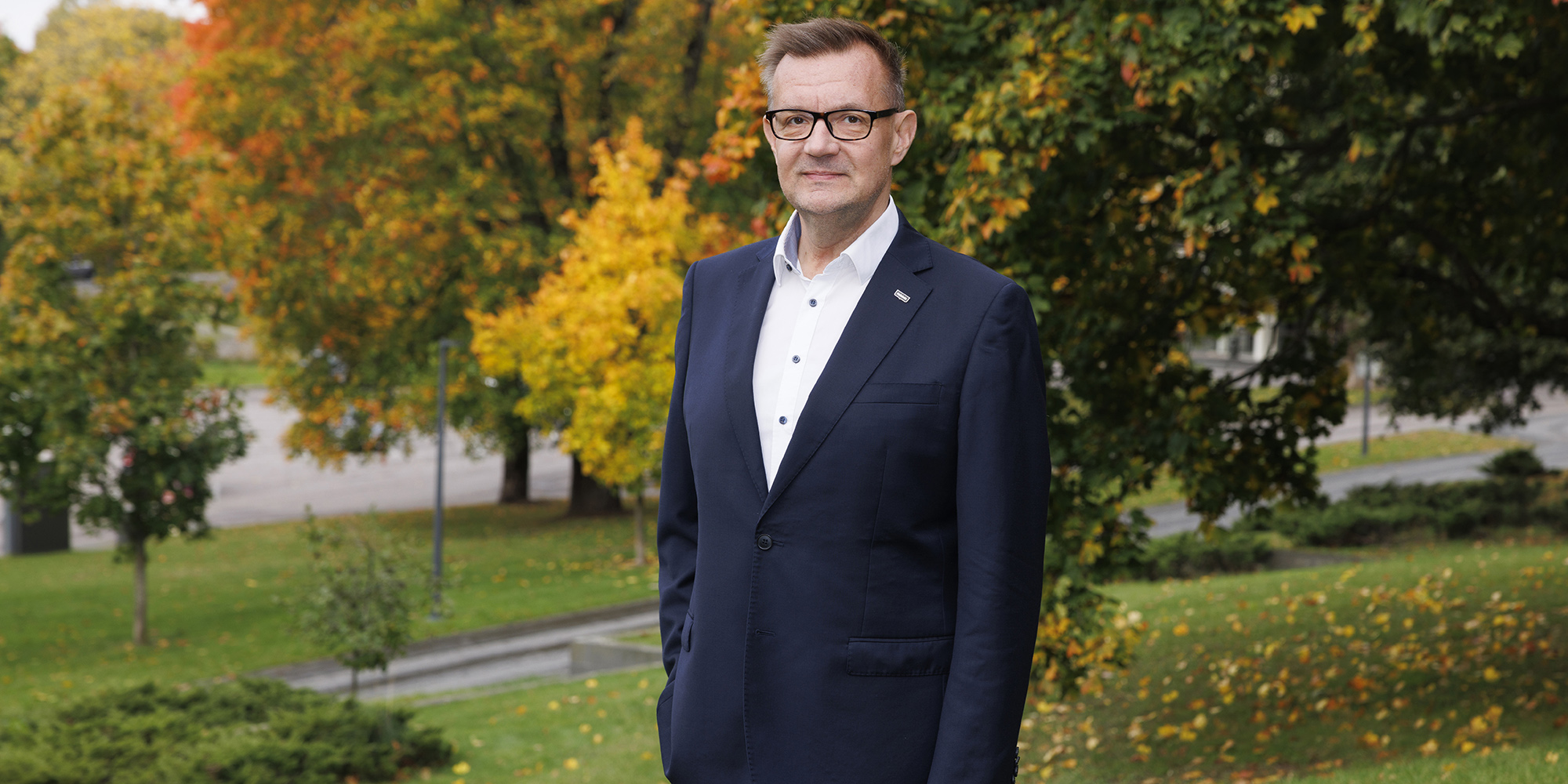"Where are your books?” her boyfriend from school pried when he came over to Diehl’s home. At his place, Diehl had seen a long corridor full of shelves stacked with books. Although there were no books in Diehl’s home, she had the impression that books are great. That is why her boyfriend’s question has stayed with her.
At his house, they referred to people as “he or she”, not “it”, as Finns often say when referring to the third-person singular in spoken language. Diehl would test the he/she pronoun at home. This upset her mother a bit.
“We didn’t speak foreign languages or consume culture at home.”
Diehl was born and raised in the small town of Pieksämäki, Eastern Finland, as the only child of a working-class family. The parents encouraged their daughter, telling her she was capable of anything.
“They really believed in me, told me that everything is possible. I laughed at their claims, but I’m sure it gave me a basic sense of trust. As did the safety of the environment I grew up in, both in my family and the Finnish society.”
Diehl says that she has enjoyed the fruits of an egalitarian Finnish society.
Justice has been important to her ever since she was small. During her school years, Diehl worked as a tutor for those with special educational needs. Even at a young age, Diehl noticed the different starting points people have in life.
The world of academia sucked Diehl right in
Now Professor Diehl has books, speaks several languages, and can use the right pronouns in every situation. In her video interview, she answers calmly, carefully considering each question. She says she prefers to observe situations before warming up. She does not draw attention to herself, but also does not remain a bystander against her will.
“We’re going to do something about this,” is how she typically reacts.
The distance between Pieksämäki and Helsinki is approximately 300 kilometers, whereas Diehl’s journey towards becoming a professor has circled around Europe, across societies and social environments. Her observer character has been useful, and her experience as an outsider has not hurt, either, even if belonging to a community is a basic human need.
 |
|
Marjo-Riitta Diehl grew up in a working-class home and became a professor after journeying across Europe and different societies and social environments. Photo: Heli Sorjonen |
During her high school Interrail trip, Diehl visited London. She had heard of the London School of Economics and wanted to see it for herself.
“The atmosphere in the LSE main building was incredible. I had no idea what it was they did there.”
For the ambitious Diehl, attending university was a given, even if she did not know what a university really was.
At first, she opted for educational sciences because being a teacher was the only academic profession she knew. Her parents also greatly valued teachers.
It was empowering to take to something like a duck to water."
The world of academia sucked the girl from Pieksämäki right in. Soon, she was spending an exchange year together with her boyfriend at Lancaster University in Britain, studying sociology and educational sciences. She was awarded as the best exchange student and received an offer for postgraduate studies.
“It was empowering to take to something like a duck to water.”
She returned to Jyväskylä to complete her master’s degree studies while participating in an internationalization program. It was not long before she found herself in Geneva at the International Labour Organization (ILO) headquarters for a six-month internship.
“There were a lot of different types of people there. A good friend of mine said they had never cleaned a bathroom.”
For Diehl, it was very exotic.
Diehl was in her element there as well. Six months turned into six years. Diehl was tasked with preparing background materials for the UN organization ILO. The organization sought to improve working conditions, enlighten employees about their rights, and promote discussion on work-related issues.
ILO is represented by employees, employers, and states. It is the only UN organization with a tripartite structure.
Her life in Jyväskylä was replaced by international friends, nearly all of them doctors or doctoral students. When spending time with people from the European Organization for Nuclear Research (CERN), it was natural to wonder if one of them might be next in line for a Nobel Prize in Physics.
Diehl also began to consider postgraduate studies. She applied to LSE, the university she’d visited during her Interrail trip.
"I have always sought to work in places where promoting equality and justice have been driving factors."
Diehl began to work on her dissertation at the Department of Management. There, Professor Jacqueline Coyle-Shapiro was also researching the psychological contract, a relatively new concept in academic research at the
time.
The psychological contract refers to the expectations and obligations employees and employers assume employment contracts to have.
“People have an innate need for justice. And everywhere you look, the psychological contract involves the notion of reciprocity. My school journey and personal experiences have reinforced this view.”
 |
|
Typically, feelings of injustice stem from decisions, Diehl says. "Once bad experiences begin to accumulate, trust is lost and the experience of work turns negative." Photo: Heli Sorjonen |
Reciprocity means that the parties of the psychological contract receive exactly as they give. For example, being active at the workplace is reflected in the salary or as new, personally pleasant tasks.
People have an innate need for justice. And everywhere you look, the psychological contract involves the notion of reciprocity."
“I have always sought to work in places where promoting equality and justice have been driving factors. At ILO, it was about equality at work, and LSE also upheld a more leftist ideology than many business schools.”
Diehl spent nearly six years in London, after which she returned to Finland to work at the Finnish Institute of Occupational Health and Hanken School of Economics. Around this time, they were debating with her German spouse on where to settle. Germany won.
Diehl went on to becoming a teacher, researcher, Academic Director of the MBA and MSc in Management Programs, then the Head of Department, and finally the Vice Dean of Research at the private EBS Business School in Wesbaden, near Frankfurt am Main.
During her thirteen years in Germany, she also had her children, who are now 11 and 9. Neighbors wondered why mister Diehl spent his time in the playground with his children. Where is your wife, they would ask, and were terrified to find out she was at work.
In a small Catholic town, no other mother in the neighborhood had a full-time job: school days were short and children needed lunch after school. Diehl, on the other hand, was surrounded by an entirely new culture with notions of justice to observe.
"It is instrumentally important that we get what is ours at work."
"You deserve a raise. You’ve achieved many goals and served for enough years, but we cannot afford to give you one. It’s fairer to give it to your male colleague, who has a family to support. Your husband has good pay," Diehl recalls her supervisor telling her early in her career, concerning a raise she did not get.
Perhaps Diehl’s supervisor was striving for justice in giving the raise to the man, but to Diehl, it was a sign of organizational injustice. These are the types of themes she studies at Aalto University. Diehl is now curious to discover the effects of organizational justice and injustice and how organizations can become fairer.
What makes organizational justice fascinating and challenging is that there are no objective measures for it, because it is a personal experience.
“It is instrumentally important that we get what is ours at work. We need the feeling of belonging and that we are appreciated as humans. When we are treated as equal members of society, we experience a sense of being included, a sense of caring.”
The ethical and moral component is strong. “We want us and others to be treated justly.”
Organizational justice can be divided into four themes. Distributive justice has to do with salaries, project funding and, for example, office and other benefits.
Procedural justice draws attention to how processes work in an organization. What decisions are made in terms of distributing work, for example? Is the promotion process transparent and equal for all?
Informational justice is just if everyone receives information equally and if the right people receive information at the right time.
Interactional justice refers to the culture of discussion in the organization and how people are treated. Culture impacts the experience of justice.
I am used to being the one who doesn’t quite understand. This is why I need to be very attentive, slightly on my toes even, at all times. I’m careful in the beginning."
“From a woman’s point of view, things are better at work in Finland than in Germany. In Germany, rules are set by men, making women strongly experience injustice,” says Diehl, who grew up in a Nordic society.
Diehl says she has often wondered if she was ignored at meetings in Germany for frequently being the only woman at the table, or because she was a foreigner. The study of organizational justice focuses on these types of questions.
“I am used to being the one who doesn’t quite understand. This is why I need to be very attentive, slightly on my toes even, at all times. I’m careful in the beginning.”
The feeling of being an outsider is not a pleasant one, but it may have been useful as a researcher.
Feelings of injustice stem from decisions
Organizational justice involves matters you never notice when they are in order.
“I claim that most issues with work and leadership are based on problems of justice: people feel they are being managed poorly.”
People compare different workplaces. Salary, personal treatment, and discussions with the superior are matters people talk about.
Typically, feelings of injustice stem from decisions.
I claim that most issues with work and leadership are based on problems of justice: people feel they are being managed poorly.”
“Once bad experiences begin to accumulate, trust is lost and the experience of work turns negative.”
Diehl mentions Finland’s healthcare strike in the spring of 2022 as an example of how a lack of justice can escalate at work. In a survey by Finnish newspaper Helsingin Sanomat, nurses were asked to name three ways to improve their working conditions. Better pay, improved resources, and changes in the way healthcare is managed, nurses answered.
According to Diehl, the battle initiated by nurses was exactly about justice. In Finland, nurses receive a low salary in relation to the challenging and responsible nature of their work compared to other industries requiring a similar level of education.
Injustice in the distribution of healthcare resources has also been visible in the lack of vacations or breaks due to employee scarcity.
In her research, Diehl has focused on how people experience justice at work and the effects of this experience.
Justice removes uncertainty at the workplace and creates stability. It is a proxy of trust. It’s about being able to trust things work out as agreed.
“This is very important in changes and crises.”
One organization may tolerate a great deal of injustice, another intervenes easily
As work changes, so do the dimensions of justice. COVID-19 has left a gap for improving justice, too, as new practices at the workplace have not yet been established.
“We are currently practicing hybrid work. How does it affect the flow of information or interaction if some employees are out of sight? Are they also out of mind? Are employees who work a lot from home forgotten when it comes to promotions, because their work effort may be more difficult to evaluate compared to those working at the office? Who gets to work from home all the time?”
Platform economy and network formation complicate the evaluation of organizational justice even further. Unified practices were easier to organize when everyone was employed by the same company.
“Now we are witnessing situations where the supervisor is not a source of justice, because there are no supervisors in the classical sense.”
Now we are witnessing situations where the supervisor is not a source of justice, because there are no supervisors in the classical sense."
How to implement organizational justice in networks or loose alliances where some people are only visiting for a short period or that do not have clear leader-subordinate relations like we used to?
Sensitivity to justice within organizations can fluctuate. Organizations have justice climates. One organization may tolerate a great deal of injustice, whereas another intervenes easily.
Now we are witnessing situations where the supervisor is not a source of justice, because there are no supervisors in the classical sense."
For example, sensitivity towards workplace bullying varies. How a supervisor reacts or does not react to bullying is a huge signal to the working community on the justice climate. Everyone creates a justice climate at work, but leaders have a key role, because they have power.
“They say that people do not switch jobs but rather their boss.”
Supervisors implement the decisions of top management: how resources are distributed, whose needs are prioritized and why, what kind of feedback is given, how processes are designed and who can influence them? How are decisions communicated?
 |
| Professor Marjo-Riitta Diehl was photographed at the new premises of Aalto University Executive Education in Töölö, Helsinki. Photo: Heli Sorjonen |
The employee experience of justice has been researched to a large degree, but the experience of leaders has thus far received less attention.
“The first attempts were normative: a leader simply needs to first find out what justice is, then act justly.”
This will only get one so far, as leaders need to accept that the experience of justice is personal and then figure out what it means for each employee. As such, justice is a question of resources. If a supervisor spends their time scraping enough employees to the workplace, they will not have time to lead.
“Assumption is often a leader’s worst enemy. We should not assume we know what the employees’ view is, what they experience to be just. By seeking feedback and asking questions, we can learn.”
"What is the significance of values and thus justice in leadership?"
According to Diehl, supervisors think about justice a great deal in change situations. She describes their position as a crossfire of demands. It involves considering the financial goals of the company, employees’ expectations, and other
stakeholders.
“Everyone has different expectations. Who do you listen to? Financial goals are often the ones that are followed. I’m sure it’s impossible to be fair in the eyes of all stakeholders, no matter how you try.”
Right now, companies are shaping ESG – Environmental, Social, and Governance criteria – as part of their strategies and goals. These may even be conflicting at times.
“I firmly believe we need to combine financial, social, and environmental goals. But it does add to the leader’s pain if financial goals are not adjusted and ESG is only added on top of them.”
I firmly believe we need to combine financial, social, and environmental goals."
We should be wondering what financial goals mean.
“There are solid grounds for redefining capitalism
thoroughly.”
In the last couple of years, there has been plenty of discussion on how it is not sustainable for companies to seek maximum profit without considering the effects on the environment and stakeholders. Redefining leadership has been discussed in a similar vein.
“It matters in our time, especially. What is the significance of values and thus justice in leadership?
What kind of mark does it leave when leaders are forced to act against their personal values, when they cannot be just, even if they want to? What effects does this have on the leader’s career?”
Diehl wants to study how leaders and supervisors sailing the ripples of justice navigate these questions.
“How are justice and trust a part of leadership and the leader’s identity and principles? It is important to study the part justice plays at workplaces, the types of leadership people seek, and how they handle themes with an ethical or moral component.”
Diehl mentions a research result that reveals that many supervisors drift into so-called Robin Hoodism.
“They sort of secretly try to make up for injustice in the organization to employees, using either personal or the organization’s resources.”
Justice is at the core of responsible leadership
Together with Julia Swank (EBS Business School) and Marion Fortin (Université Toulouse 1 Capitole, TSM Research), Diehl has studied change situations in a bank. The researchers interviewed managers and executives at the bank before and after organizational change, observing three ways to process justice in change situations.
For the first group, it was above all a question of personal values and morals. They battle against measures required by the change. They found dismissing employees, for example, to be dreadful.
After the change, they would either leave the workplace or had already found a new one. Conflict would turn into a major career change.
Members of the second group examined justice from several perspectives. They found dismissals to be terrible but fair because it was based on the company’s strategy. They did not have a clear philosophy on leadership but highlighted the importance of shared decision-making.
If employees experience being treated justly, they commit, and work performance and well-being improve."
For the third group, it was clear which teams should be dismissed, which retrained, and which merged. For them, strategy and financial goals, and thus the company’s performance, were guarantees of justice.
The career paths of the second and third groups did not change as drastically as those of the first one.
“They say that the company culture connects, but experiences on this may be very different.”
For Diehl, justice is at the core of responsible leadership in the sense that a company benefits from justice.
“It is sustainable people management. If employees experience being treated justly, they commit, and work performance and well-being improve. Justice is also reflected in reputation and the employer brand.”
"Those who have moved between classes are more able to consider different employee groups and connect people."
Several years ago, reading Luokkaretkellä hyvinvointiyhteiskunnassa (Engl. transl. Class Trip In a Welfare Society) by Katriina Järvinen and Laura Kolbe was a wakeup call for Diehl. She realized she had been on a lengthy class trip that had taught her to navigate in a range of communities.
“I’ve had moments when I’ve realized the shortcomings in cultural and social equity. Many others have experienced this too! One writer mentions being ashamed of not having books in their home, for example.”
Diehl brings up another person with a long class trip behind her, Stora Enso’s CEO Annica Bresky. Bresky, who moved from Greece to wealthy Sweden as a child, has emphasized that compassion is important in leadership, along with the ability to step into another person’s shoes. It also helps to be interested in people. Bresky says that because of her long trip, she has that ability.
The class trip and leadership have not been researched a great deal. But the little that we have indicates directly that those who have moved between classes are more able to consider different employee groups and connect people."
“The class trip and leadership have not been researched a great deal. But the little that we have indicates directly that those who have moved between classes are more able to consider different employee groups and connect people,” says Diehl.
In her own research, Diehl has stated that the experience of being different usually increases the ability to appreciate differences and use the situation to benefit the organization.
“The experience can mean working abroad, a diverse friend group, volunteer work, a foreign spouse, anything.”
Diehl’s journey from Pieksämäki to Aalto University circled through several countries. But the road back towards Pieksämäki is straight. She drives along it regularly to visit her dear summer place as well as her family. Her class trip has not affected her strong bond and sense of belonging with her home region.
“It might be the force that has helped me tackle my feeling of being an outsider in different circumstances.”
Did you enjoy this long form? If your answer is yes, you can find more long forms here.






















